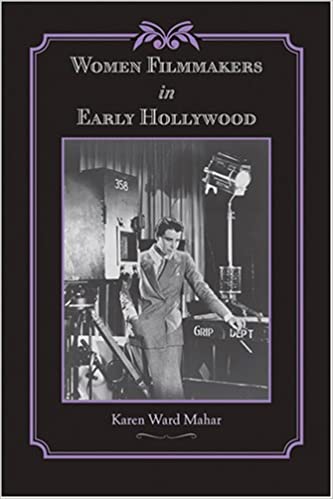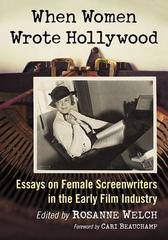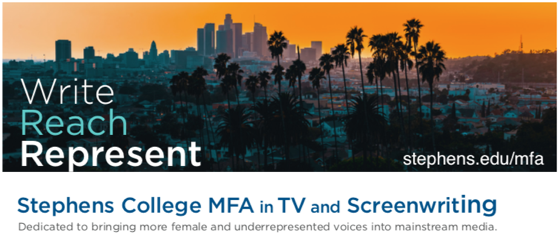Watch this entire presentation
Subscribe to Rosanne’s Channel and receive notice of each new video!
Transcript:
So the problem here is we’re missing the writers. This movie, also famous in the United States is called George Cukor’s movie because George Cukor directed it. However, it was written by Ruth Gordon and Garson Kanin, another married couple who wrote films together. Ruth Gordon is more famous as an actress. She was in Rosemary’s Baby. She got an Oscar for that. She did several films in her early career. She did Harold and Maude which is also a cult classic. They wrote this film specifically and they cast it as we had a casting director speak this morning. They purposely said we’re only going to sell you the movie if you put Katherine Hepburn and Spencer Tracy in it. So they’re doing the work of the director but it’s George Cukor’s film. Makes them crazy. They also wrote several films together and as I said Ruth won an oscar for being in Rosemary’s Baby. That’s her very young. She was a Broadway actress and then, of course, she worked all the way until her death.
A Note About This Presentation
A clip from my keynote speech at the 10th Screenwriters´(hi)Stories Seminar for the interdisciplinary Graduation Program in “Education, Art, and History of Culture”, in Mackenzie Presbyterian University, at São Paulo, SP, Brazil, focused on the topic “Why Researching Screenwriters (has Always) Mattered.” I was especially pleased with the passion these young scholars have toward screenwriting and it’s importance in transmitting culture across the man-made borders of our world.
To understand the world we have to understand its stories and to understand the world’s stories we must understand the world’s storytellers. A century ago and longer those people would have been the novelists of any particular country but since the invention of film, the storytellers who reach the most people with their ideas and their lessons have been the screenwriters. My teaching philosophy is that: Words matter, Writers matter, and Women writers matte, r so women writers are my focus because they have been the far less researched and yet they are over half the population. We cannot tell the stories of the people until we know what stories the mothers have passed down to their children. Those are the stories that last. Now is the time to research screenwriters of all cultures and the stories they tell because people are finally recognizing the work of writers and appreciating how their favorite stories took shape on the page long before they were cast, or filmed, or edited. But also because streaming services make the stories of many cultures now available to a much wider world than ever before.
Many thanks to Glaucia Davino for the invitation.
* A portion of each sale from Amazon.com directly supports our blogs
** Many of these books may be available from your local library. Check it out!
† Available from the LA Public Library
Podcast: Play in new window | Download
Subscribe: RSS
![20 Ruth Gordon & Garson Kanin from Why Researching Screenwriters (has Always) Mattered [Video ] (53 seconds)](https://rosannewelch.com/wp-content/uploads/2020/07/rmw-sao-paolo-20.jpeg)


![Screenwriter Jennifer Maisel from The March Sisters at Christmas, and Tempting Fate from the How I Wrote That Podcast [Audio]](https://rosannewelch.com/wp-content/uploads/2019/08/hiwt-stephens-logo-1-1.png)
![Screenwriter Jennifer Maisel from The March Sisters at Christmas, and Tempting Fate [Audio]](https://rosannewelch.com/wp-content/uploads/2020/07/MFA-program-Jennifer-Maisel.png)

![19 Nunnally Johnson and John Ford from Why Researching Screenwriters (has Always) Mattered [Video] (51 seconds)](https://rosannewelch.com/wp-content/uploads/2020/07/rmw-sao-paolo-19.jpeg)
![18 Nunnally Johnson and The Grapes Of Wrath from Why Researching Screenwriters (has Always) Mattered [Video] (1 minute 11 seconds)](https://rosannewelch.com/wp-content/uploads/2020/07/rmw-sao-paolo-18.jpeg)

![17 Albert Hackett & Frances Goodrich from Why Researching Screenwriters (has Always) Mattered [Video] (1 minute)](https://rosannewelch.com/wp-content/uploads/2020/07/rmw-sao-paolo-17.jpeg)


![16 Robert Riskin from Why Researching Screenwriters (has Always) Mattered [Video] (1 minute)](https://rosannewelch.com/wp-content/uploads/2020/06/rmw-sao-paolo-16.jpeg)
